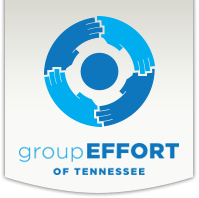
About Psychosocial Rehabilitation
Psychosocial rehabilitation services use a comprehensive approach (mind, body, and spirit) to work with the whole person for the purposes of improving an individual’s functioning, promoting management of illness(s), and facilitating recovery. The goal of psychosocial rehabilitation is to support individuals with severe and persistent mental illnesses as active and productive members of their communities with the ability to manage their illness and their lives with as little professional intervention as possible. Individuals, in partnership with staff, form goals for skills development in the areas of vocational, educational, and interpersonal growth (e.g. household management, development of social support networks) that serve to maximize opportunities for successful community integration. Individuals proceed toward goal attainment at their own pace and may continue in the program at varying levels intensity for an indefinite period of time
Program Expectations
- Within 14 days of admission into the program, develop an individualized treatment plan for the patient that includes clear goals/ objectives for recovery and updated at least every six months.
- A Tennessee licensed mental health professional is on staff or available on a consultative basis.
- Core Services are provided in the following areas:
- Improving the ability of patients to manage and cope with their illness.
- Entitlement/income budget maintenance.
- Self-care and independent living skills.
- Social Skills.
- Vocational development.
Depending on the patient’s needs/preferences
- Advocacy Services.
- Substance Abuse services.
- Educational services.
- Family support and education.
- Job placement and support.
- Mental health services.
- Self-help and peer support.
- Safe and affordable housing.
Medical services
- Coordination of care is provided with medical and behavioral health providers that are already involved in the patient’s treatment.
Discharge plan is developed when the patient has achieved his/her short and long-term goals or moves outside of the service area and includes coordination with providers who will deliver post-discharge care.

Additional Information Requested:

Creative Center
The purpose of the creative center is to evoke creativity in the members that visit the center daily. Members will be able to develop skills to creatively prepare items or further cultivate the creative skills they currently possess. Members will be able to participate in a variety of activities including but not limited to art, dance, music, knitting, etc.
Member Support Center
The purpose of the member support center is to meet members needs in a variety of areas. Through case management and resource linkage members will be able to address ISP needs, as well as develop healthy support systems. The focus for this center will be in areas such as adult education, wellness, healthy support system development, and any other community resources that can aid in success daily activities of living.


Employment Center
The purpose of the employment center is to allow members to develop and practice the soft skills and tasks it takes to function in a variety of job positions. Members who sign-up for this center will assist Group Effort administrative staff with various tasks such as administration, meal preparation, facility cleanliness, etc. Members will also be supported in job discovery (for positions outside of the day center), resume building, application assistance, interview skills, job search and job support.
Community Center
The purpose of the community center is to provide members with an opportunity to make a positive impact in the communities in which they live. This center will assist members in integrating themselves into the community through volunteer opportunities

Members Transition As Needed
Program Assessments
Members will receive regular assessments to determine which services would be most beneficial as they progress through the program.
• Clinical Interview (with diagnosis)
• SASSI
• CAGE
